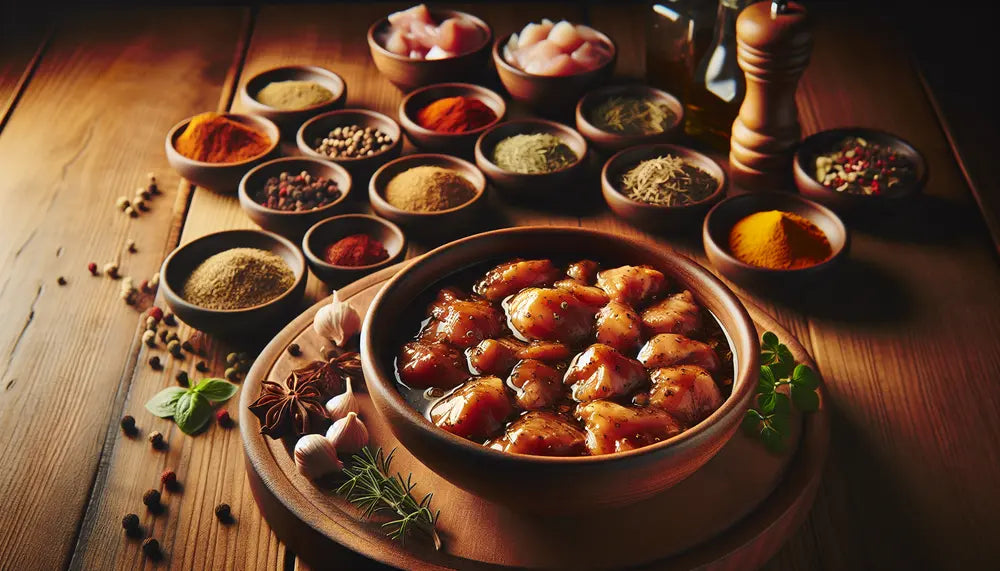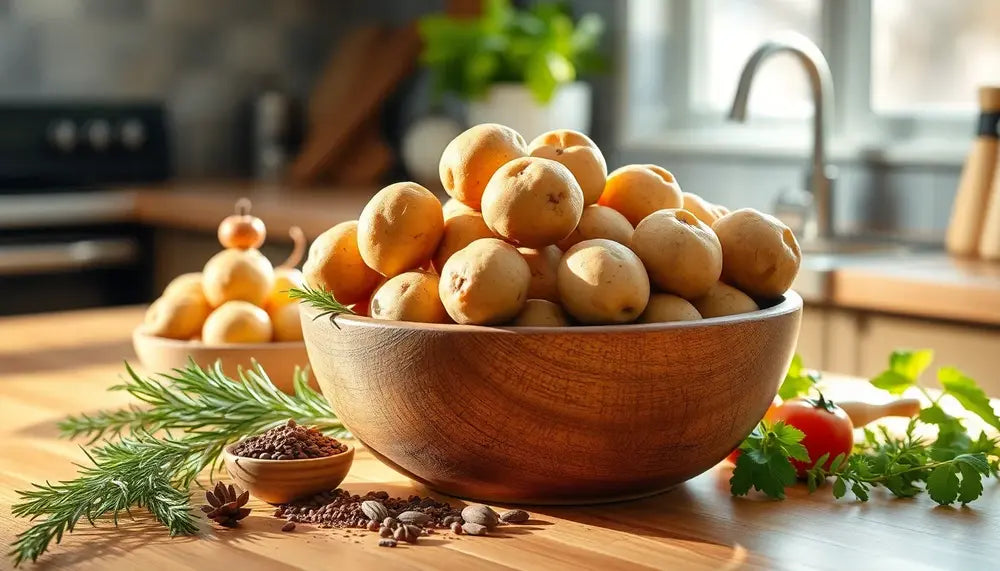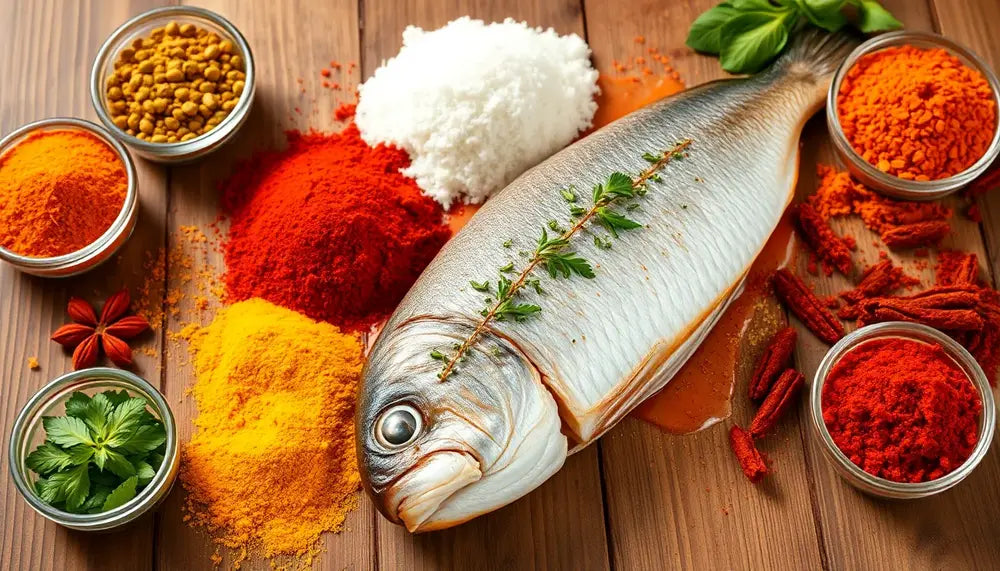Why a marinade makes chicken better
One Marinade can fundamentally transform your chicken. It doesn't just cause the meat juicier and more aromatic but also improves it texture. Here we explore the effects and benefits of marination.
The marinating process softens the chicken as the acids in the marinade, such as lemon juice or vinegar, break down the proteins in the meat. This process not only makes cooking easier, but also ensures that the chicken retains moisture better as it cooks. Another significant advantage is that Flavor enrichment. The spices and herbs used in the marinade penetrate deep into the meat, giving it a more intense and varied flavor.
Marinated chicken also scores with an improved Health protection when grilling. A marinade can significantly reduce the formation of certain harmful compounds that can be produced when grilling meat. This makes the marinated chicken not only tastier but also healthier.
Above all, the flexibility of a marinade allows you to use different ones Flavors to experiment with what makes each meal special and unique. Whether Asian-inspired with soy sauce and ginger or classic with olive oil, herbs and garlic - the possibilities are endless.
These features make a carefully prepared marinade irreplaceable for cooking high-quality and delicious chicken dishes.
The basic ingredients of a successful chicken marinade
An excellent one Marinade for Chicken is made up of essential and versatile ingredients that work together to create deep flavor profiles and ideal cooking conditions. These basic ingredients are crucial for optimally preparing and seasoning the meat.
- Oil: forms the basis of most marinades. It helps distribute the spices evenly and keep the meat moist while cooking.
- Acid: Elements like lemon juice, vinegar, or yogurt are critical to tenderize the meat and bring out flavors.
- Spices and herbs: These give the marinade its unique flavors. Garlic, pepper, paprika powder and thyme are often used.
- Sweeteners: Ingredients like honey or sugar can help create a caramelized crust and introduce sweet components that balance the flavor.
- Salt: Important for intensifying the flavor and also helpful as it locks in moisture in the meat.
The ratio of these ingredients can be adjusted to support different flavors and cooking methods, be they quick sautés or slow braises. The choice of ingredients and their proportions (Oil to acid ratio is ideally 3:1) influence the final result and should be fine-tuned depending on the desired final taste.
Pros and Cons: Using chicken marinades
| Advantages | Disadvantages |
|---|---|
| Increases the juiciness of the meat | May extend cooking time |
| Enhances the flavor of the chicken | Increased preparation effort |
| Diverse flavor options thanks to different spices and herbs | Marinade ingredients can cause allergic reactions |
| Can help reduce the formation of carcinogenic substances when grilling | Ideally requires several hours or overnight to absorb |
Step-by-step instructions: marinate chicken
Marinating chicken can be easy and effective if you use a clear Step-by-step instructions follows. Here you will learn the basic steps on how to ideally marinate your chicken to make it tender and flavorful.
- Prepare marinade: Mix the oils, acids, spices, herbs and salt in a large bowl. Depending on the recipe, sweet ingredients are also added.
- Prepare chicken: Wash the chicken thoroughly and then pat dry with paper towels. If necessary, cut the chicken into smaller pieces to allow for more even marinating.
- Marinate: Place the chicken pieces in the bowl with the marinade or place both in a sealable plastic bag. Make sure all parts are evenly covered with the marinade.
- Allow to take effect: Seal the bag or cover the bowl and refrigerate for at least an hour, ideally overnight, to intensify the flavors.
- Preparing meat: Remove the marinated chicken from the marinade and discard any excess marinade. The chicken can now be fried, grilled or baked.
Note that the exposure time depends heavily on how intense the desired aroma should be and which cooking technique is used. A longer marinating time results in a deeper flavor, while a shorter time is sufficient if you want the flavor to be more subtle.
Variations of chicken marinade for different tastes
The versatility of marinades allows you to get creative and adapt recipes to different tastes. Here we present some Variants of chicken marinade which range from classic to exotic and can be chosen depending on your preference.
- Classic herb marinade: Combine olive oil with fresh herbs like rosemary and thyme. Add garlic, salt and black pepper to create a timeless and popular option.
- Asian hot and sweet marinade: Use soy sauce as a base, mixed with honey, chopped ginger, garlic and some chili flakes for a sweet and spicy taste.
- BBQ marinade: Mix ketchup or BBQ sauce with a splash of apple cider vinegar, a little brown sugar and smoky paprika for the perfect grilled chicken.
- Indian yogurt marinade: Create a base of yogurt flavored with garam masala, turmeric powder, coriander and a squeeze of lemon juice for a creamy, tangy flavor.
- Mediterranean lemon garlic marinade: Use olive oil, freshly squeezed lemon juice, crushed garlic and oregano for a fresh, aromatic taste.
Each marinade can be tailored to individual tastes by varying the amount and type of spices used. Experimenting with different combinations helps to find exactly the taste that best suits the occasion and personal preferences.
Tips and tricks for the perfect chicken marinade
To achieve the best flavor development and texture of the marinated chicken, there are a few Tips and tricksthat you can follow. These pointers will help you create a perfect marinade every time.
- Even marinating: Make sure the chicken is completely and evenly covered with the marinade. It's best to use a resealable plastic bag and gently massage the marinade into the meat.
- Note marinating time: Depending on the marinade and desired flavor intensity, let the chicken marinate for at least an hour, but ideally overnight.
- Avoiding metal containers: Use glass or plastic containers for marinating, as metal containers can react with the acid and affect the taste of the marinade.
- Use leftover marinade: Always boil leftover marinade before using it as a sauce to eliminate potential bacteria from the raw meat.
- Fresh ingredients: Always use fresh and high-quality ingredients for your marinade to guarantee optimal flavor development.
Follow these tips to improve your cooking skills and take your dishes to new levels with delicious marinated chicken.
Avoid common mistakes when marinating chicken
While marinating chicken is a relatively simple process, there are some common mistakes that should be avoided for the best results. Here are important tips to help you avoid common pitfalls.
- Marinating time too short: A common mistake is not marinating the chicken long enough. To ensure that the flavors fully penetrate the meat, the minimum time should be approximately an hour but ideally several hours or overnight.
- Overmarinate: While a certain amount of marinating time is important, marinating for too long, especially with very acidic marinades, can toughen the meat. Limit the time to a maximum of 24 hours.
- Incorrect containers: As mentioned previously, using metal containers can affect taste and cause chemical reactions. Avoid this by using glass or plastic containers.
- Inadequate massaging: It is important to massage the marinade thoroughly into the meat to ensure even distribution of flavors.
- Using uncooked marinade: Never use the marinade in which raw chicken was marinated without boiling it first. Boiling eliminates all bacterial threats.
By following these tips, you can ensure your marinated chicken comes out delicious and safe every time. Be sure to avoid these mistakes to ensure the quality and safety of your dishes.
How long should chicken be marinated?
The optimal one Marinating time for chicken determining is essential for the success of the court. The length of time the chicken should be marinated depends on various factors, including the type of marinade and the desired flavor result.
- Short marinating time: A marinating time of 30 minutes to two hours is often sufficient for a light flavor.
- Moderate marinating time: If you want deeper flavor penetration without making the meat too tough, 2 to 4 hours is ideal.
- Longer marinating time: The chicken can also be marinated for up to 24 hours for maximum flavor penetration and particularly soft meat. However, do not exceed this time frame to avoid texture loss.
It's important to find the balance between allowing enough time for the flavors to penetrate and avoiding too much acid exposure, which could toughen the meat. The choice of time should also be made taking into account the nature of the meat. Breast meat, which tends to be drier, can benefit from slightly longer marinating times, while shorter times are often sufficient for more tender thigh meat.
Use these guidelines as a basis, but adjust times to suit your specific marinade ingredients and personal taste. Correctly observed marinating time results in an optimally prepared dish that is full of flavor and pleasant texture.
Serving suggestions for marinated chicken
Marinated chicken is not only a culinary delight, but also versatile. Here you will find inspiring ones Serving suggestionsto make your meals varied and appetizing with marinated chicken.
- As a main course: Serve the marinated and fried chicken with a side of aromatic jasmine rice and steamed vegetables for a complete meal.
- Chicken wraps: Fill tortillas with strips of marinated chicken, fresh lettuce, a sprinkle of cheese and a light sauce component, ideal for a delicious lunch.
- Salad additive: Thinly slice the chicken and add it to a fresh garden or Caesar salad for a protein-packed meal.
- In the sandwich: Place juicy pieces of marinated chicken between two slices of your favorite bread, complemented with fresh tomatoes, lettuce and mayonnaise for a quick dinner.
- As finger food: Serve small pieces of grilled chicken with various dips such as tzatziki, hummus or a spicy BBQ sauce, perfect for a party or as a snack.
These suggestions are designed to help you harness marinated chicken's full potential and expand your kitchen creativity. It shows how diverse this dish can be and how it fits into numerous dietary styles and occasions. Let your imagination run wild and create delicious combinations that will delight not only you but also your guests.
Health Benefits of Marinated Chicken
Marinated chicken is not only delicious, but it also offers health benefits, which make it a preferred choice for a balanced diet. Because of the ingredients and method of preparation, marinated chicken has some positive health effects.
- Reduced risk of cancer: The marinade can reduce the formation of harmful compounds that can occur when grilling meat. Studies show that marinades with herbs and spices in particular are rich in antioxidants, which help prevent the formation of such compounds.
- Improved Heart Health: Using olive oil and other unsaturated fats in the marinade can help reduce the risk of heart disease by promoting 'good' HDL cholesterol levels and reducing 'bad' LDL cholesterol.
- Nutrient intake: Marinating in acidic ingredients such as lemon juice or vinegar can improve the availability of important minerals such as iron from the meat. This is particularly beneficial for those with iron deficiency.
- Reduction of calories: Marinating in ingredients like vinegar or citrus not only adds flavor but also eliminates unnecessary fat during the cooking process, resulting in a lower calorie content.
These health benefits make marinated chicken a smart choice for anyone who cares not only about their taste but also their health. By adding spices and herbs, you can improve not only the taste but also the nutritional value of your meals.
Conclusion: How a good marinade enhances every chicken dish
Marinating chicken is an art that can add an extra dimension of flavor to any dish. A well chosen one Marinade not only helps to intensify the taste, but also improves the texture and nutritional value of the meat. By infusing different flavors and tenderizing the chicken, every dish is enhanced both in terms of taste and appearance.
Whether it's a simple weeknight meal or a special meal for guests, the right marinade can transform chicken from ordinary to extraordinary. It doesn't matter whether you prefer traditional or experimental flavors, because with the countless variations of marinades you can always create the perfect ambience for your meals.
In summary, using a carefully prepared marinade not only makes the chicken more flavorful and healthier, but also makes every meal special. This small effort in the kitchen leads to big results on the plate and ensures satisfaction with every bite.
Chicken marinade FAQ: Tips for perfect flavors and juiciness
Why should I marinate my chicken?
Marinating chicken not only improves the taste and aroma of the meat, but also makes it juicier. The acid in the marinade helps break down the protein structures, making the chicken more tender.
What ingredients are included in a basic marinade for chicken?
A typical basic marinade for chicken contains oil, acid (such as lemon juice or vinegar), salt, spices, and herbs such as garlic, pepper, and thyme. Sweeteners such as honey can optionally be added to promote a caramelized crust.
How long should chicken be marinated?
The optimal time for marinating chicken varies depending on the marinade and desired intensity, but should be at least an hour. For deeper flavor penetration and improved texture, we recommend marinating the chicken overnight.
Can I use the marinade again after use?
After contact with raw chicken, the marinade should not be reused unless it is cooked first. This is necessary to kill any bacteria. Cook the marinade for at least 3 minutes before potentially using it as a sauce.
What mistakes should I avoid when marinating chicken?
Avoid marinating the chicken for too short or too long. Too short can result in the flavors not penetrating sufficiently, while too long, especially with very acidic marinades, can toughen the meat. The use of metal containers should also be avoided as they can react with the acid.





Share:
Particularly spicy: the perfect marinade for vinegar dumplings
Juicy belly meat with Asian marinade